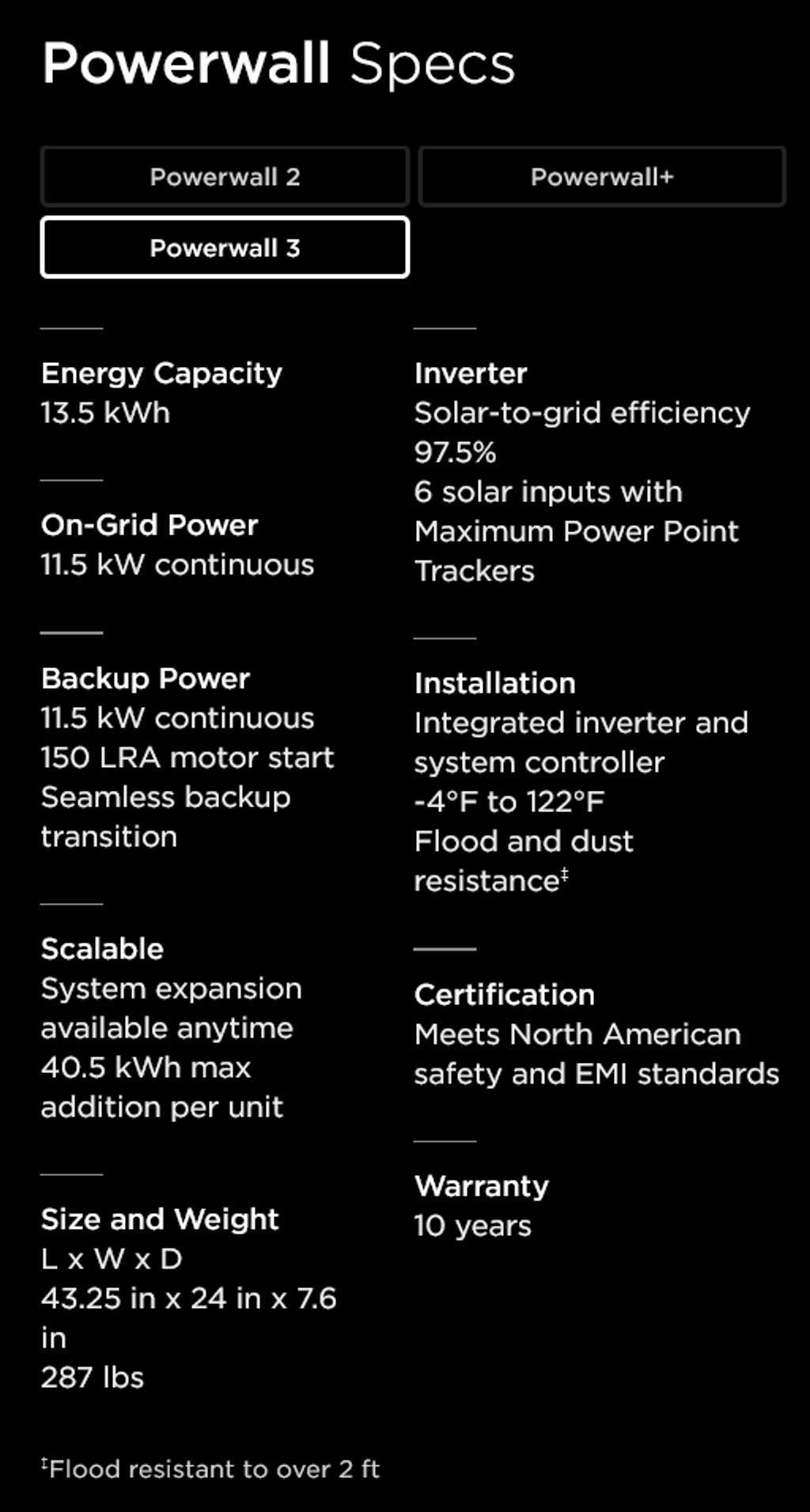Tesla has officially announced the third generation of its Powerwall home energy storage system, which brings several improvements and a few changes.
The Powerwall 3 is a fully integrated solar and battery system, designed for home installations. The latest version has the same energy capacity as the Powerwall 2 – 13.5 kilowatt-hours – but its continuous power output increased by several kilowatts to 11.5 kilowatts (both on-grid and backup power), compared to the Powerwall 2 (Powerwall 2 with an inverter). These two numbers are in line with the previous report from an initial installation.
An interesting thing is that the Powerwall 3 is flood resistant to over 2 feet – “Flood and dust resistance”, compared to “Water and dust resistance” in P2/P+.
Tesla explains that the new Powerwall can supply more power with a single unit and is designed for easy expansion (up to 40.5 kWh per unit). The integrated solar inverter can accept six solar inputs (compared to four in the Powerwall+). Its solar-to-grid efficiency remains at 97.5 percent, while the warranty remains the same at 10 years.

Tesla Powerwall 2 and Powerwall 3
The weight of the P3 is 287 pounds, compared to 251.3 pounds in the case of Powerwall 2, although we should probably compare it to the Powerwall+, which weighs 343.9 pounds. That’s a 16.5 percent reduction, which makes us wonder whether the speculation about the prismatic LFP battery replacing cylindrical (2170-type) NCM is still valid or maybe premature. The size of the P3 is noticeably smaller than before (especially compared to P+).
An important note is that the Powerwall 3 is not directly compatible with the Powerwall 2/Powerwall+, and can’t be added to Powerwall 2 or Powerwall+ installations: “Powerwall 3 can be added to other Powerwall 3 batteries and cannot be added to Powerwall 2 or Powerwall+ batteries. Powerwall 3 is not compatible with other solar inverters.”
According to Tesla, the Powerwall 3 will be available to customers starting in 2024. Orders are not being accepted yet but there is an option to sign up for updates.
It will be very interesting to see whether Tesla will be able to improve its margins on the new Powerwalls and maybe reduce prices a bit.


